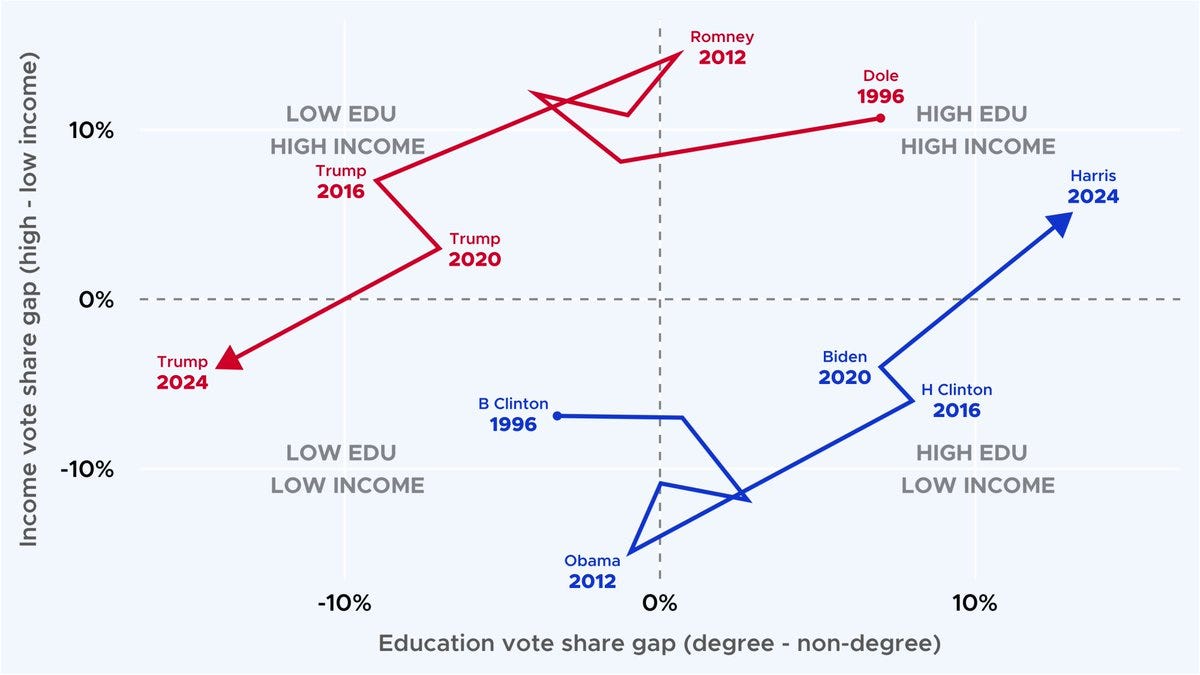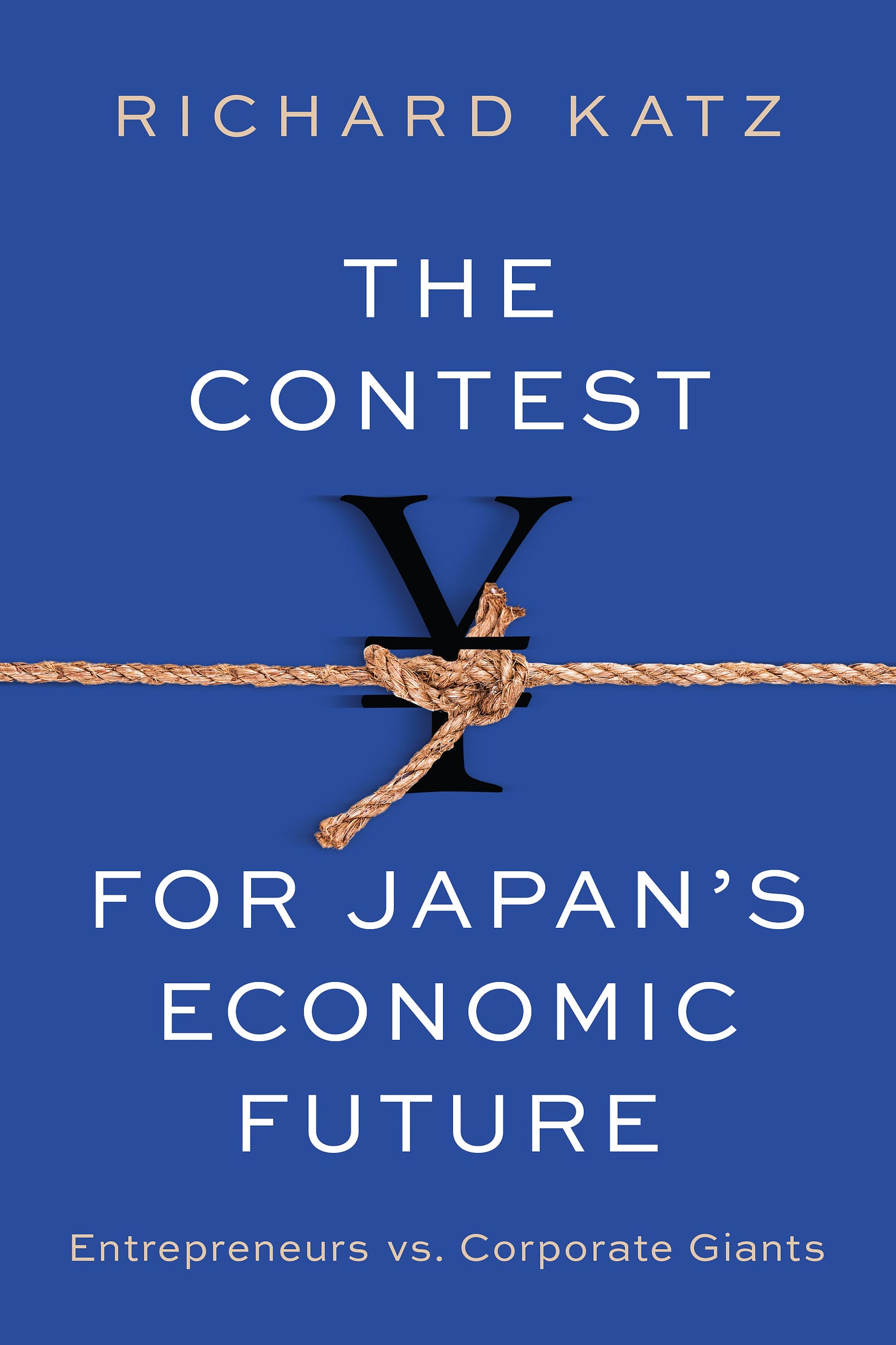I wrote a couple of posts earlier in the year on the potential impact of a Trump victory on Japan. I have little to add right now. So, I’m just giving you the two URLs plus some additional info. By the way, it now looks like Trump will control not only the White House and Senate but also the House of Representatives, not to mention control of the Supreme Court by his allies.
First, it will be a disaster for Japan if Trump implements his promise to impose 60% import tariffs on China and 10% tariffs on everyone else. One reason is that Japan’s exports to China and many other Asian countries depend more on their own exports to the US rather than their internal GDP growth. The US still imports a lot of computer chips from Japan, but now so many of them come in cellphones marked “Made in China.” Secondly, the yen will stay weaker under Trump. That’s because his tariffs, tax cuts, and other measures will boost inflation in the US. And that will compel the Federal Reserve to keep interest rates higher than otherwise. Higher interest rates in the US mean a weaker yen. For details, see this post: https://richardkatz.substack.com/p/japans-trump-economy-shock-if-he?utm_source=publication-search.
Secondly, some in Japan have the illusion that, as a businessman, he will do what’s best for the US economy. The reality is that he will do what’s best for his own power and his growing constituency loves his tariffs and other measures, even if they hurt the economy. And even if they hurt those very voters, such as blue-collar workers. This post details the reasons for the growing nationalism, isolationism, and protectionism among American voters, particularly workers without a college degree. For details, see this post: https://richardkatz.substack.com/p/nippon-steel-is-canary-in-the-coal?utm_source=publication-search.
Thirdly, isolationism is a big part of the Trump agenda, which bodes very poorly not just for Ukraine but possibly for Asian “hot spots” as well.
Finally, there has been a massive realignment of voters over the past three decades (and perhaps longer). Trump extended and greatly amplified this trend. In 1996, the Democrats' biggest advantage in terms of the share of the vote was among voters with less education and lower incomes, while Republicans got higher shares among those with lots of education and higher incomes. Now, it’s the reverse. In fact, says blogger Patrick Flynn, Trump’s current voter base is closer than Harris’ base to what Obama’s base was in 2008 (see chart on top). From Dole 1996 to Trump 2016, most of the change on the GOP side was in terms of educational attainment and then from 2016 to 2024 came a big change regarding both education and income levels. On the Democratic side, there was much less change regarding either income or educational attainment between 1996 and 2016. The big change came during 2016-2024. The bottom line seems to be that—whatever the electoral impact of recent inflation and other issues—growing isolationism and protectionism are not one-off events that will be easily reversed in the next election.




Thanks, Richard, sharp analysis
We certainly agree that Trump's second presidency will, most likely, not be good for Japan. I suspect it also increases the chances that China will try to retake Taiwan by military force. In that case, how do you think America and Japan would react? Perhaps both would choose to do nothing.